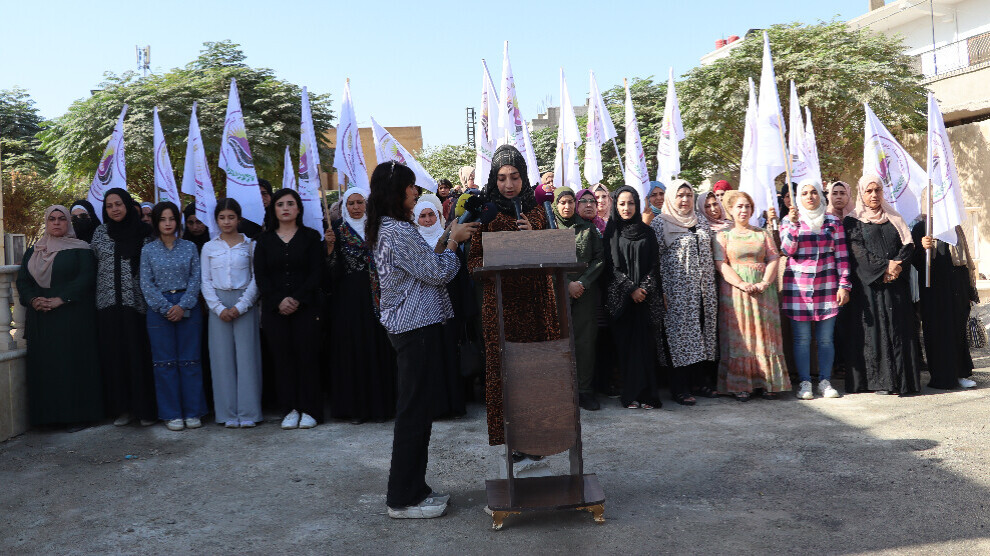No to Repeating the Massacres of the Coast and As-Suwayda in Sheikh Maqsoud and Ashrafieh
The neighborhoods of Sheikh Maqsoud and Ashrafieh in the city of Aleppo have witnessed a dangerous escalation in bombardment and siege. Many areas have come under heavy attacks using large-caliber weapons.

News Center - As the danger intensifies for thousands of civilians trapped in Aleppo’s Sheikh Maqsoud and Ashrafieh neighborhoods — with children and women caught amid shelling and severe shortages of basic necessities — the Zanobia Women’s Association issued an urgent humanitarian appeal on Tuesday, October 7, calling on the international community to act immediately to save lives and halt the worsening humanitarian catastrophe.
“In the name of justice, humanity, grieving mothers, and innocent children, we cry out to the conscience of the world,” the statement began.
The association expressed deep concern and outrage over the horrific developments, stating: “We, the Zanobia Women’s Association, are following with grave alarm the tragic situation in Sheikh Maqsoud and Ashrafieh, where peaceful civilians are facing brutal assaults with heavy weapons and machine guns, and tens of thousands are living under an inhumane, suffocating siege.”
The statement stressed that what is happening today constitutes a war crime by all international standards, as more than 300,000 civilians, including displaced families from Afrin who sought safety there, are now trapped under bombardment, cut off from essential food and medical supplies.
Condemning the attacks and the siege as “barbaric and inhumane,” the statement urged the international community and humanitarian organizations to act immediately to stop the massacres and lift the blockade without preconditions, as well as to open urgent humanitarian corridors for the delivery of food and medical aid.
“We hold those enforcing the siege and carrying out the assaults fully responsible for the human losses and the unfolding catastrophe,” the association said, adding: “The world’s silence in the face of these crimes amounts to indirect complicity. War crimes do not expire, and accountability will come — inevitably.”
The Zanobia Women’s Association reaffirmed its commitment: “Based on our national and humanitarian principles, we declare full solidarity with our people trapped in Sheikh Maqsoud and Ashrafieh. Our struggle will continue for a free, safe homeland where justice prevails and human rights are respected without discrimination.”
Warnings Against Repeating Past Massacres
Meanwhile, both the People’s Initiative and the Afrin Association in Qamishlo (Qamishli), in North and East Syria, issued a joint statement on Tuesday, October 7, warning against a repetition of past atrocities such as those that occurred in the coastal region and in As-Suwayda.
“We call on the international community to pressure all sides to commit to dialogue and negotiation as the only viable path toward resolving disputes,” the statement said, emphasizing the right of residents to defend themselves and their dignity in accordance with international law.
The organizations cautioned that these attacks risk triggering massacres similar to those of the past, holding the Syrian Interim Government fully responsible for these aggressive actions and their consequences.
They further criticized the contradiction between ongoing discussions of “national dialogue and democratic unity” and the actions of “certain internal and external actors working to inflame Syria’s internal conflict for their own agendas and interests - at the expense of the Syrian people’s safety, stability, and national unity.”
The statement called on international powers, the United Nations, and human rights organizations to pressure the authorities in Damascus and all parties involved to abide by the March 10 Agreement, and to adopt dialogue and negotiation as the sole means of resolving disputes.
“As a people, we salute the steadfastness and resistance of the residents of Sheikh Maqsoud and Ashrafieh in the face of these barbaric attacks,” the statement concluded, “and we reaffirm our legitimate right to defend our dignity and our free lives in accordance with humanitarian principles.”
